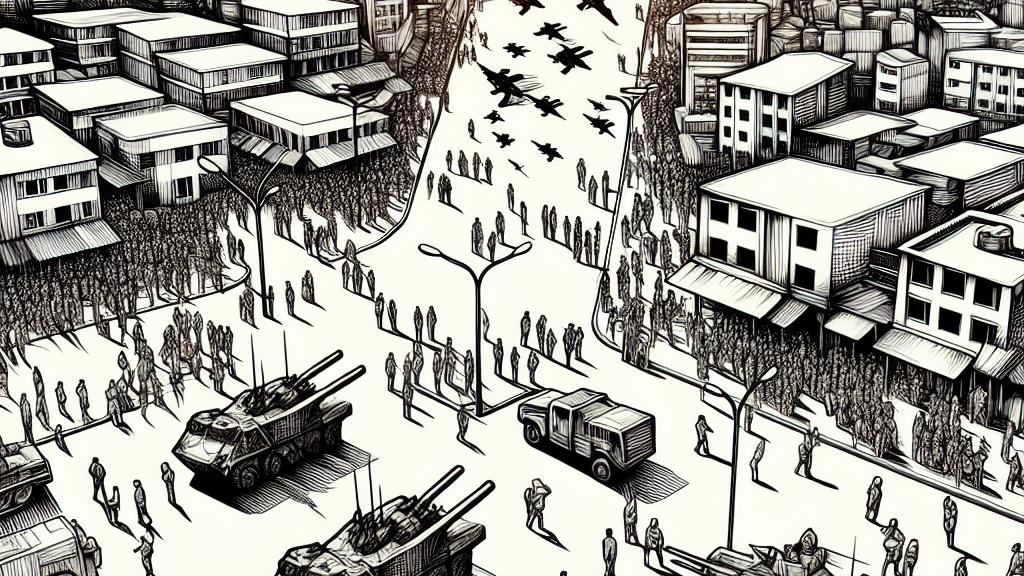Israeli Airstrike in Beirut Targets Hezbollah Media Chief
Overview
- An Israeli airstrike has critically wounded Hezbollah's media chief, Mohammad Afif, escalating regional tensions.
- This unusual move marks a shift in Israel's targeting strategy towards prominent figures within Hezbollah.
- The ongoing conflict has dramatically worsened since October 2023, affecting countless civilians caught in violence.

A Calculated Strike in Beirut
On November 17, 2024, a significant Israeli airstrike hit the heart of Beirut, specifically targeting Mohammad Afif, the influential media chief of Hezbollah. This strike occurred in Ras el-Nabaa, a bustling neighborhood typically devoid of such military actions. It is notable that Israel usually avoids striking high-ranking individuals unless they pose immediate threats. Yet here, Afif's assassination underscores a bold new approach in Israel's military tactics. As a key spokesperson for Hezbollah, tirelessly advocating for the group, Afif represented a crucial link in the party's narrative-building efforts, making his loss all the more impactful. Such a direct attack indicates a dramatic escalation that could alter the dynamics of the ongoing conflict.
The Escalating Conflict Landscape
Context is critical when analyzing this airstrike; the region has been in turmoil since October 2023. Following Hamas's violent incursions into Israeli territory, Hezbollah launched its own series of rocket attacks in retaliation, igniting fresh conflict between the two factions. This cycle has spiraled into a humanitarian crisis, with recent reports revealing that nearly 3,841 individuals have been killed and countless others injured as a result of the sustained violence. For instance, the Lebanese health ministry's alarming statistics reveal the scale of suffering endured by civilians. Families find themselves torn apart, living in constant fear, and struggling for survival amidst a backdrop of relentless strikes that leave destruction in their wake.
Repercussions and Future Prospects
In the aftermath of Afif's death, Hezbollah erupted in outrage, vowing to retaliate against Israeli targets. Hamas, too, echoed sentiments of solidarity and grief, labeling Afif a steadfast voice of resistance. The implications of this targeted assassination are profound; it signals a potential shift in Hezbollah’s strategy and raises the specter of heightened hostilities that could engulf the broader region. As international actors engage in attempts to mediate a ceasefire, the urgency for dialogue is greater than ever. The potential for further escalation looms, emphasizing how critical it is for diplomatic solutions to take precedence over militaristic responses. Ultimately, without effective conflict resolution, the cycle of violence threatens to spiral out of control, endangering the very fabric of regional stability.

Loading...